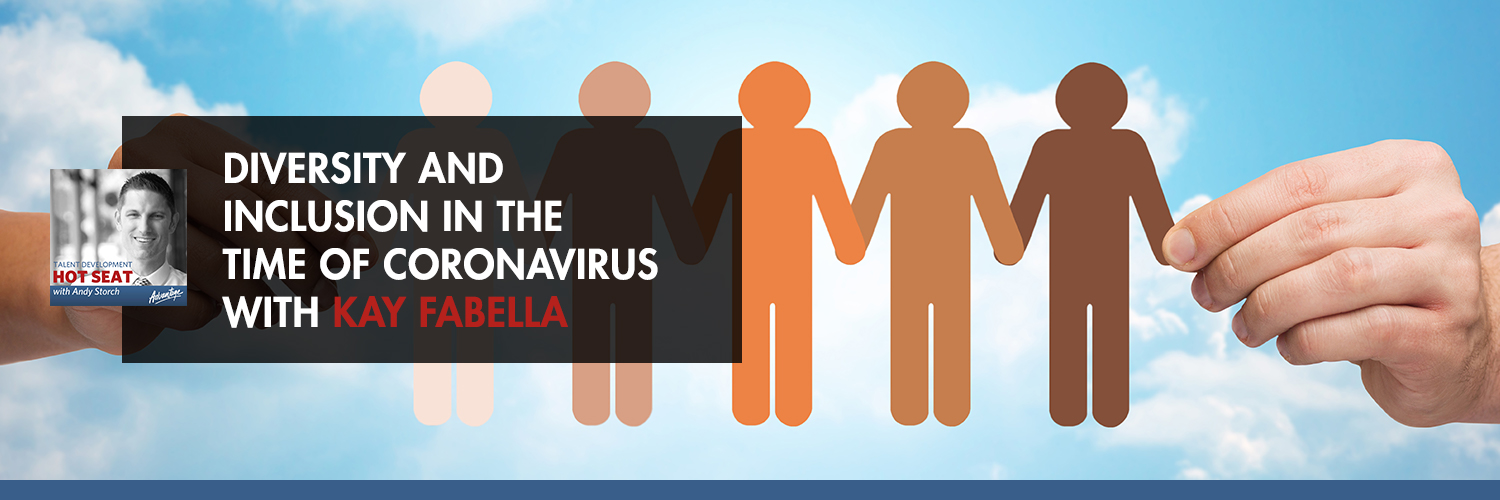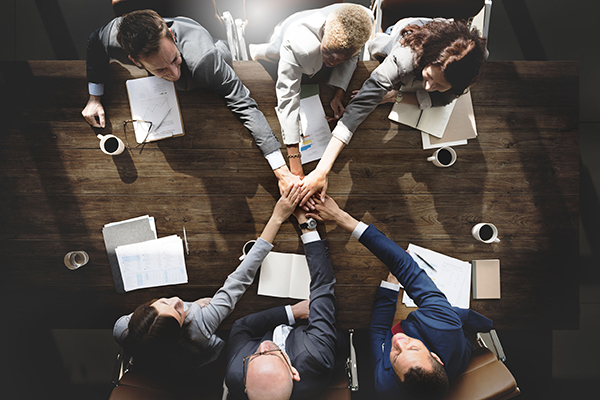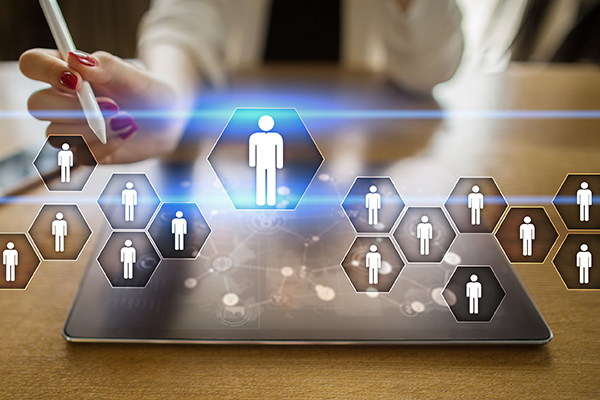
Diversity and inclusion in the time of coronavirus
It's going to be hard to get innovation unless you create a culture of psychological safety."
In the Hot Seat: Kay Fabella on how organizations can best support their people during this time
Diversity and inclusion in the workplace are crucial to any organization as it promotes reasonable business advantage.
For today’s episode, Andy Storch interviews D&I expert Kay Fabella, a Filipina-American living in Madrid. Kay is also the host of her own podcast called Inclusion in Progress, in which she interviews all kinds of leaders in the D&I space.
On today’s show, Kay talks about the state of diversity and inclusion in the global economy and how people are responding and working remotely during this time of coronavirus. Kay shares how organizations can best support their people during this time and how workers and employees can speak up, stay in touch, and adapt during these times.

Listen to the podcast here:
Diversity and inclusion in the time of Coronavirus with Kay Fabella
Supporting your people through these trying times
I’m grateful that you’re joining me. I want to share an interview with you that I did live on LinkedIn with my friend, Kay Fabella, a Filipina-American living in Madrid, Spain. She’s a D&I expert. She has done a lot of work with organizations on the topic. She hosts a podcast called the Inclusion In Progress where she interviews all kinds of leaders out there in the D&I space. I wanted to get her on to check in with her not only on the state of D&I and where things are out there in the global economy but also how people are responding and working remotely during this time of Coronavirus. How can organizations best support their people during this time? How can workers, employees, speak up and make sure they're staying in touch, still being heard, seen and adapt to these times? It's a short and great conversation. I'm looking forward to sharing it with you. Without any further ado, here's my conversation with Kay Fabella.
---
I am with Kay Fabella who's joining me from Madrid, Spain. Kay, welcome to the show.
I am excited to be here. Thank you for having me.
We connected through our mutual friend and mentor, Jessica Laura Moore. It's been fun getting to know you. We met in person in London back when people were allowed to meet in person.
We’re allowed to get on planes and travel. Remember those days?
I remember those times like they were a couple of weeks ago. A lot has changed since then, but I'm excited to have you on because I know you do a lot of work in the D&I space. You host a podcast, Inclusion In Progress. You do a lot of work with different companies, different professionals, leaders. There's a lot to talk about here. Before we get into any of it, let's start with a little bit of an introduction of who you are and what you do.
I've been tuning into the show and obviously, I'm a fan of it. It’s like, “I’m with Andy. This is cool.” My name is Kay Fabella. I am a D&I consultant and strategist. I'm originally from California. My parents are from the Philippines and immigration seems to run in the family because now I'm here in Madrid, Spain, where I've called home for several years. I work with inclusion-driven organizations to create cultures where diverse talent can stay, grow and thrive. My diversity story is that I'm a second-generation Filipino-American who has been in Spain living my Spanglish life since 2010. I came to Spain to learn Spanish because the wine admittedly is much more affordable than my home state of California, where I'm from. I met my now-husband in my first year. I've delivered solutions for companies across seventeen industries. I've seen firsthand the benefits of organizations that make an effort to make sure everyone feels like they're valued, respected and heard, which is something that I know that you're passionate about too.
Before we get into the organizational stuff, thinking about D&I from a personal standpoint, cultural standpoint, you have this very unique story and background being Filipino-American growing up in California, living in Spain. Some of my perspective of a lot of cities in Europe is that unlike in the US, it's a lot harder to break into the culture sometimes and make friends when you're a bit of an outsider. Without throwing any countries under the bus, have you found that to be true?

Diversity And Inclusion: When it comes to culture and companies, inclusion is really the goal.
I've been lucky, especially a place like Spain, one of the reasons I've stayed as long as I have, aside from my Spanish husband, which is another big reason why I’m here is like the wine. Especially being Filipino, we are the Latinos of Asia. We're family-oriented. We're warm. There's much of that, at least in Spain, I've been lucky. I've made a massive effort to learn the language. One of the main reasons I came here in the first place. I've only had positive experiences. That being said, I didn't realize that for a country like Spain that's been under a dictatorship for 50 years. Because immigration is so new, anyone who looks at my face thinks I'm Chinese. That wasn't too much of an issue until now because of everything happening with the virus and there's stuff happening.
The stigma that came from China. I'm sure there's a lot of people that say, “I want nothing to do with Chinese people or Chinese food or anything.” I often wonder, does that have an impact?
It does. I am heartbroken to hear about stuff happening in the States. My sister is based in San Francisco and that's a famously progressive city. She has friends who are Asian who are dealing with stuff. Without throwing anyone under the bus, it's important to remember that at least from my perspective as somebody who has been on the receiving end of the bias and call it xenophobia. I don't like throwing isms at things. It adds an extra layer to lived experience for anyone who is in D&I because you're then able to understand. It's almost like when I talk to other minorities or other minority leaders, I can skip to Chapter 27 because you have similar lived experiences that make the conversations that much richer, deeper, and allow you to tap into their stories much more.
A Unique Journey
You talk about it's an easier connection talking with under minorities, underrepresented groups saying we must have a shared story. Even though everyone's story, everyone's journey is unique, it's different, but what you're saying is we've probably come through some of the same challenges and can relate to each other a little bit more.
Especially for underrepresented groups, the thing that I'm learning about D&I even as somebody who has a live diversity story that there's much to learn. You're the same. We realize that we don't have to have all the vocabulary per se. It is important to remember that everybody's story is their lived experience. Depending on whether it's systemic oppression, racism or the fact that even within people like the group of BIPOC, people of color like myself. Certain people pass as white and what are their lived experiences, they've had versus somebody who is darker on the color spectrum. There's much to understand that within D&I. You have to have conversations from a place of I can't generalize for anyone. No group is a monolith. The sooner that we understand the whole point is to create spaces where everybody can show up as their full selves. Instead of treating people like, “You belong in this group and you belong in this box. Therefore, you have this whole lived experience.” We're robbing individuals of the opportunity to add to the conversation in a way that's truly inclusive.
D&I In The Global Economy
Everybody does have their journey, their own story. I talk about it all the time when you have people who treat people as humans and individuals. Before we get into what's going on with Coronavirus and people working remotely, I want to take a step back because you run this podcast and much as I talked to a lot of people on the broad topic of talent development. You talked to a lot of people in the D&I space. What's the state of D&I now in the global economy or at least in the Western economy before we came into this global pandemic?
I've had the good fortune of having people on my podcast, Inclusion In Progress because for me, the whole point of trying to create spaces for other minority leaders who are looking for these resources was to tap into the different experiences from other people in the D&I space. Everybody brings so much to the table. I've been truly pleasantly surprised by how willing and collaborative everyone in this space is to approach everything with an all hands-on deck mentality. If one person feels they're excluded or unequal, then all of us do. I will say that I've been lucky to have and connect with many awesome people. With that said, everybody is understandably nervous. There is a lot of worries that, for example, in D&I, it's considered a discretionary budget for some companies when it shouldn't be. If anything, this is the time to be taking care of your people. It’s because you don't see them doesn't mean the same problems about exclusion or who didn't feel like they belonged or who has more or less privilege goes away.
You'd have to double down on that. There's also this nervousness about do we continue with business as usual in terms of our regularly scheduled programming. For ERG, May is APIA month, Asian Pacific Islander Awareness month. June is PRIDE. What are we doing for those months to continue to bring awareness to these groups, which are still valid and valuable conversations that should be ongoing? How do we adjust it to the new reality that we're living in? Those are the two main things that I've heard from speaking to other people in the space. How do you continue to bring the priorities of your conversation forward around D&I to the company? Do it in what's admittedly a much more decentralized way because people are scattered. We're sheltering in place. I've heard sheltering in place. I’ve heard quarantined. I've heard locked down. That's one of those terms that's been rebranded five different times.
[bctt tweet="Everybody’s story is their lived experience." via="no"]
Much like everything in the D&I space, climate change and all these things. They’re like, “I don’t like this. We got to change it.” Staying at home, not going into the office anymore. You talked about visibility, not being seen and I want to get to that. I want to come back to something too. Going back to this bit about inclusion, this is something that you've been looking at for a long time. I always caveat any comments I make. They are coming from a white man in a privileged world. In running this show and talking to a lot of people in talent development a few years ago. Before that, most of the conversation was about diversity and bringing in the right numbers. We need to get more women, more people of color into the workforce or whatever that may be. There wasn't as much conversation about inclusion. Whereas now, I feel like I hear a lot more about the importance of inclusion, psychological safety, making sure people can bring their whole selves to work. It's refreshing and cool to see that. I’m wondering if you see the same thing.
People realize that diversity was a new metric. Let’s make the company bio photo look pretty when we have all the team together, which is superficial and not lasting. As you and I both know, when it comes to culture and companies, inclusion is the goal. I'm refreshed to hear that many people and many companies are prioritizing it. I know another word that's thrown around a lot is belonging. How do you cultivate belonging for people so that they feel that it's a win-win for the company? If companies say that they want to be industry leaders, they rely on innovation and innovation relies on teams creating together.
For a team to create together and create to its best capacity, every individual, regardless of race, gender, age, background, religion, ability, all feel that they can safely contribute to having their voice be heard and have their ideas heard. Innovation at companies relies on diverse and balanced teams. That was the connection. I don't need to bore you guys. You've seen every Harvard Business Review study. You've seen every Deloitte study, McKinsey study. There's much data out there in terms of the business case for inclusion. It's refreshing to see companies pay attention to that.
Innovation And Culture Fit
I love that you brought up the idea of innovation. I don't know if you call it passionate, almost obsessed with this topic. I've studied innovation for a few years. Many companies think that they create an innovation department and innovation is going to come from that. It has to come from the culture. It's going to be hard to get innovation unless you create this culture of psychological safety and of belonging where people feel like they can make mistakes. They can try things. They can speak their opinion, share ideas without feeling like they're going to be ignored or they're going to be even punished if something doesn't go their way or they're saying something that doesn't align with the traditional culture.
Another outdated term, which I'm very glad to see it get thrown out the window, is this idea of culture fit. That's a big one. It's something that a lot of people from D&I are fighting against because if you're trying to standardize a culture across the company, that by its nature means that it's not inclusive. This idea that you have to check-in part of who you are, the door to be able to fit into what the culture that's imposed on you is detrimental to the company for the reasons I shared. Also, for you as an individual to not speak up when you are on the receiving end of discrimination or bias, to not share your story or speak up in a meeting because you're afraid that whatever consequence will be unfairly put upon you because of whatever reason it happens to be. Hopefully, that's one that sticks through this time and beyond.
Overcoming Underrepresentation Challenges
That will take a while, but it's moving fast. I heard about it at a conference, this idea of culture addition versus culture fit. I had the pleasure of interviewing Claude Silver, the Chief Heart Officer at VaynerMedia. She's a phenomenal human being. In that episode, we talked a lot about the importance of culture addition and not a culture fit. You're not trying to fit a certain type of culture or structure. We want to find people that can add to this, that can bring value, which is cool. You mentioned earlier how things are changing. Certainly, Coronavirus dominating the news so we don't get to necessarily celebrate the different diversity groups that might have weeks or months associated with them and different things that could be going on. We also have the big challenge that everybody's remotely now. You mentioned the challenge of maybe not being seen. There are some, by definition, underrepresented groups, minorities or people felt like they weren't necessarily even being seen before and now they're not in the office. There's a risk they won't be seen at all. How do we overcome this challenge and make sure that we include everybody still?
D&I, HR people, whatever it looks like in your company, if you have all of those teams, fantastic. That's great. Make sure it's all hands on deck. What I've been finding is ERG leadership has been critical in this transition because you are already tapping into the individual needs of your community. Giving spaces where they've been allowed to feel safe or you have like a proactive, almost like mini communication in the company within the company that you go to for information. On the one hand, you have to look at what are each of those individual groups that feel underrepresented in the company saying that they need and tap into your ERG leadership if you have that. Be proactive in terms of creating forums or spaces where people can participate.
It's a detrimental situation for obvious reasons what's happening. On the other hand, I've seen many more creative uses of technology within companies to continue to build and cultivate culture, which gives me hope for not what will happen through this but after what's going to happen. How are you creating opportunities for people that say, for example, our primary caregivers in their household? That's one ERG that I know is starting if it wasn't already active or if it wasn't something that people thought of, it's something people think of now.

Diversity And Inclusion: There are many opportunities for leadership right now that don't necessarily have to come from specifically designated roles.
I know, for example, Latina cultures or cultures where you're likely to have not people who are caring for their children but also caring for elderly relatives in the same household. That's going to affect your productivity. You have people who are single parents. You have people who are dealing with younger kids and differently-abled people. For some differently-abled people, it means it's a dream. You don't have to worry about the actual physically getting to work. How are you reaching out to each of those individuals? It's looking at what your D&I initiatives already we're.
Seeing if possible, if there is a representative, a leader or somebody who can be your central contact point for that group, for them to then tap into all the different people within their respective underrepresented group. Relay that information back to you in terms of what they need because caregivers are going to have a certain set of needs. Introverts are going to have a certain set of needs. Maybe even set up like a, a group lunch thread so that they can FaceTime with colleagues, so they don't completely isolate themselves and turn into quarantined zombies. Talking to people, for example, especially from communities, even thinking in terms of people who are the considered essential workers on the ground, they're still part of the company and how are you taking care of them?
Making an intentional, proactive effort on the part of leaders to communicate with each of the groups that were already struggling to be heard. On the part of individuals who it's up to you how to not share your story if you weren't already sharing it, to begin with. Being over communicative in terms of what you need because companies won't know how to serve you best, especially when they're trying to juggle a bunch of different things at once. Given that we're all trying to navigate this new normal and react or be proactive as best as possible with what's in front of us. It goes both ways. It’s the dual responsibility thing.
It is on both sides. From the organizations, I've been talking to and looking at reacting well and getting that communication going. Making sure that everybody's in touch and knows what they need to be doing. Giving people the technology that they need. On the individual side, especially for introverts, there's a risk of disappearing. I had our mutual friend, Gemma Stow, on the show. She works with introverted women and talking about the tendency or risk of them saying like, “This is great. This is exactly what I wanted. I'll disappear and hide,” but how that's going to hurt their careers. For a lot of people, this may seem like a great thing. They don't have to go into the office. For extroverts like me, we're like in torture.
I've seen many memes for introverts and extroverts comparing themselves.
Getting Represented In The Workplace
I've been working for over a few years. I am used to this. I'm on video calls talking to amazing people like you all the time. What should be people be thinking about to make sure that they're still represented in the workplace? They're still communicating that they're still going to be on good standing and well-positioned when things do get back to normal.
I mentioned ERG leadership because it's already structurally ingrained within the company. It's important for people to remember as individuals. If you're reading this, regardless of where you are on the cultural or corporate hierarchy, you have to make sure that you're checking in on yourself every day first. What we're going through is collective trauma. It's true. As long as you know that you're okay, also making sure that you are checking in on your people, the people that depend on you. If you have it in you if it isn't an additional burden if it isn't something that is going to add to potential anxiety or burnout or whatever it is that we're going to go through because we're going to go through emotions.
I feel fifteen emotions a day on month four of quarantine. It's trying to be proactive. There are many opportunities for leadership that doesn't necessarily have to come from specifically designated roles. That's a great opportunity for people who maybe you've had to work harder before to get some FaceTime in with a manager who was in and out for travel or whatever it happened to be. You have the opportunity because you know where to find them to reach out and say, “How can I be of service to you? How can I step up? How can I contribute in a way that's going to help you at this time?”
[bctt tweet="It's going to be hard to get innovation unless you create a culture of psychological safety." via="no"]
At this point, because there is no handbook, there is no pandemic playbook for this that's going to fall from the heavens and tell us here's what to do. Anything in terms of if you're looking to move your career forward and if you've been fighting to be seen or if you are traditionally overlooked for whatever the reason happens to be, you can be proactive in your communication. As an introvert who is also a practicing working from home, people always ask me all the time like, “You're putting out content all the time. I see that you're on LinkedIn all the time. When do you sleep?” I'm like, “I sleep a lot,” but I batch everything. I base it off of when I have energy. I serve from a place of when I'm at my best and then I go and retreat into my little introvert hole with my cats and my husband.
Maybe it's a Netflix and a good book. That's what it comes down to for you. If you have enough self-awareness to, one, make sure that you're mentally, emotionally, and psychologically okay. That no one that you know in your immediate vicinity is unwell. Speaking to a manager or somebody who you see is overwhelmed, whether it's a teammate, a colleague, someone further up the chain than you or your ERG leader and ask, “How can I be of service to you right now?” That's a great proactive way for you to step up at this moment in time that could increase not your visibility but also your trajectory at the company in a way that maybe you would have otherwise in going to the office every day.
Making A Change
Kay, I'm thinking about people whether working remotely or not, which we all are, want to improve the diversity, inclusion, and equity in their company culture. It may not be that great. You and I are lucky that we get to talk to people from organizations that are progressive and have done the work. There are a lot of organizations out there that haven't done much. For people in those types of companies that want to start to make a change, what are a couple of things they can do? What advice would you give?
If you haven't been considering a remote work policy, now is the time. Flexible working is something that is often overlooked, even amongst the most progressive companies around diversity and inclusion. It is the great equalizer for the opportunity, for access to talent, for growth. Sitting down and making sure whether it's obvious we would love this to not be in a situation where we're reacting but rather proactive. Since we're in it, take notes, be proactive with your HR, your legal, your finance teams, everybody who is this is going to influence, is onboard to make sure that everyone can safely, securely work from home when necessary.
Not just now, but moving forward. Thinking of what are the different virtual communication protocols that you can put in place for this time to make sure that the tools, technology, and techniques that you have in place are keeping everyone engaged no matter what. I don't know about you, Andy, but one of the conversations I'm often having with companies is like, “I'm worried about what's going to happen after this when I tell people that they have to go back to the office and they don't want to. What are we going to do to make sure that we continue to connect with them even beyond this.”
Finally, working with D&I, I know that maybe for whatever reason, it's at different stages at different places in the company. Leaning on them because there's so much that they can bring to the table because they already have access to ERG leadership. They know who are the people are that are underrepresented in the company. They know who the people are that are struggling to be seen. They know the different levels of privilege and bias that people are facing the 100 scales. Working with them and working alongside them to make sure that your people are taken care of. This is another thing that's come up in conversations.
We're thinking not for now but also the future of work and who's going to be coming into the company. I imagine 2021 or 2022. Generation Z is going to enter the workforce in full force. They're going to ask as one of the questions on their interviews, “How did you take care of your people during the Coronavirus crisis?” That's something that companies should consider. It's not reacting to what's in front of you, but being proactive for the future of this is a unique opportunity to reinvent your culture from the ground up. Not just for now, but for the future. Your companies, not just innovation, but survival will depend on it.
That question will come up, how did you handle this? What is your work remotely policy? My friend, Jimmy Rose, who works in talent development. We had a conversation about reentry and will people even want to go back to work? Will they have to? Will they be able to? What will happen if schools are still closed, but companies are saying you need to come back to work, but kids are at home? There's a lot of questions out there. First, we have to get through this and make sure people are healthy and safe. We get to a point where it's safe to go back to work, then we can address all those things. For anybody who wants to get in touch with you, I tagged you in this LinkedIn. I tagged you in that post. People can find you on LinkedIn. If they want to get in touch with you, where should they go? How can they follow you?

Diversity And Inclusion: Diversity and inclusion is the great equalizer for opportunity and access to talent or growth.
First of all, thank you so much for having me. It's a privilege to be here. Thank you for having this conversation. It's super important. They can find me on KayFabella.com. That's where I'm talking about all the stuff that I'm up to as well as on my podcast, Inclusion In Progress, which is available everywhere podcasts are.
It’s a great podcast. I love all the content, the guests, and the topics you're covering on there, as well as your posts on LinkedIn and the stuff that are out there. If you're interested at all in the D&I space and you're not following Kay, make sure you connect with her and follow her. Make sure you connect and follow me and jump on. We do these on a regular basis. Kay, this has been awesome. Thank you for joining me on the show.
Thank you.
Take care.
- Inclusion In Progress
- Claude Silver – Previous episode
- KayFabella.com
- LinkedIn – Kay Fabella
The Talent Development Hot Seat is sponsored by Advantage Performance Group. We help organizations develop great people.
- Leveraging education to create equity in talent mobility with Matthew Daniel from Guild Education - December 26, 2022
- Solving L&D Measurement Mysteries with Kevin M. Yates - December 13, 2022
- How to create a culture of meaningful work with Tim Olaore of Adventis Health - December 6, 2022
